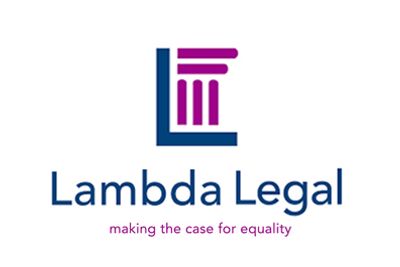By Greg Nevins, Counsel for Lambda Legal, Dec. 4, 2014.
Dear Ask Lambda Legal:
Lambda Legal: In a surprise decision by the Supreme Court of the United States denying review of the marriage cases petitioning for review so far, Indiana recently joined the growing number of places where same-sex couples can now marry.
Depending on where you live and where you work, getting married to your same-sex partner might place you at risk for discrimination. Just because the law changes in favor of freedom and fairness, it doesn’t mean that everyone will be celebrating with us.
Lambda Legal recently published a Know Your Rights Toolkit (lambdalegal.org/know-your-rights/workplace) specifically addressing concerns about discrimination in the workplace.
Discrimination while at work can manifest in many different areas, including hiring and promotion, experiencing a hostile work environment, wrongful termination, sexual harassment, words or actions targeting someone’s gender identity or expression or inappropriate violations of privacy.
A mixture of federal, state and local laws explicitly protect LGBT people and people with HIV, federal and state bans on sex discrimination provide additional protections.
There is currently no federal statute that uses the terms “sexual orientation” and “gender identity” to describe prohibited discrimination in private-sector (nongovernment jobs).
There is a very strong argument, increasingly accepted by federal courts outside Indiana and by the Equal Employment Opportunity Commission, that the ban on sex discrimination in Title VII provides protection for LGBT employees.
However, President Obama has issued executive orders using those terms to clarify that employment discrimination against LGBT people by the federal government or by federal contractors is not permitted.
What should you do if you are fired?
While every situation is different, there are some things you can, and should, do if you feel you have been wrongfully terminated as a result of your sexual orientation, gender identity or HIV status:
Ask your employer to put the reason you were terminated in writing.
Obtain copies of your employment records, including evaluations and disciplinary actions.
Study your employee manual’s sections on employment termination. If your employer did not follow its own guidelines, you may be in a better position to contest the decision or at least negotiate better terms for your termination.
If you are asked to sign any paperwork, carefully read it and consider consulting an attorney first, because signing the document may limit your options down the road.
If you have any questions, or feel you have been discriminated against because of your sexual orientation, gender identity or HIV status, contact Lambda Legal’s Help Desk at 1-866-542-8336 or visit lambdalegal.org/help.
Lambda Legal is the nation’s oldest and largest legal organization working for the civil rights of lesbians, gay men and people with HIV/AIDS. You can contact Lambda Legal’s Help Desk at 866-545-8336 with your legal questions, or visit www.lambdalegal.org on the Web for more information.
